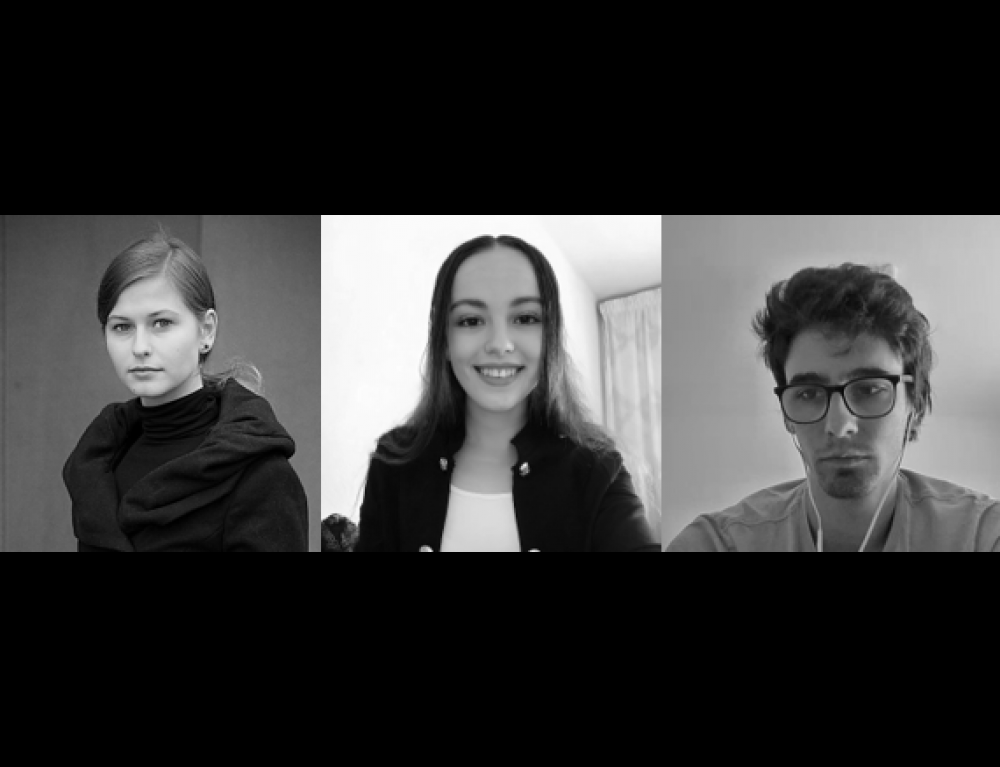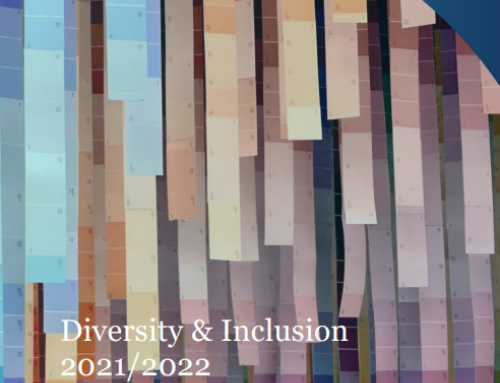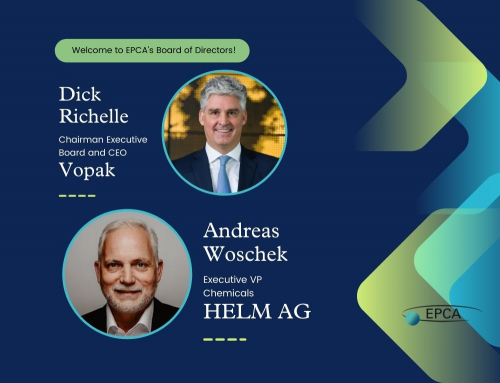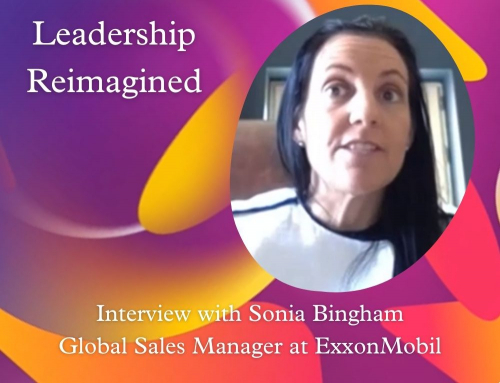EPCA interviews former EYDC finalists

The European Youth Debating Competition (EYDC) was a European student debate competition that took place from 2016 to 2019. It gave opportunity to groups of young students, aged 16 to 19, to debate on chemistry related issues. Winners from the National Finals represented their countries at the European Finals held during EPCA Annual Meetings.
We had a chat with three of the EYDC finalists to see how this experience has impacted their life, their choices and their perception of the petrochemical sector.
- Kalina Spławska (KS) is Biotechnology student at the Warsaw University. She participated to the EYDC Competition in 2017, reaching the 3rd place.
- Ahlam Oulad Ali (AOA) is Biochemistry and Molecular Biology student at the University Rovira i Virgili, Tarragona. She participated to the EYDC Competition in 2017, reaching the 4th place.
- Luka Baković (LB) is Master student of Electrical Engineering currently also enrolled in a BA in Maths. He participated to the EYDC Competition in 2016, reaching the 8th place.
How did you benefit from the participation in the EYDC?
KS: I really liked the experience. I kept in touch with some of the participants for a fair amount of time after the debates and it certainly broadened my knowledge on the topic of plastic as well as sharpened my presentation skills. The coaches’ advice has helped me many times since then.
AOA: EYDC has been very enriching to me. It also helped me to develop the sense of belonging to society and had an impact on my professional development. My priorities changed from that day: I knew immediately that a sustainable future with a responsible use of plastics was possible, and that it was in our hands.
LB: It is always useful to see different perspectives. I knew only the oil and gas part of the industry and the EYDC made me aware of its plastic business.
What was your knowledge of the petrochemical sector when you first enrolled in the competition?
KS: In terms of environment and ecology, my knowledge was very general and rudimentary. I was a little better informed on the industrial and chemical aspects of the topic, having been in a high school class with strong focus on chemistry which was taught by a chemical engineer.
AOA: My knowledge was very limited, and unfortunately media only talked about this sector when an incident happened.
LB: I knew the sector only for its upstream business, and I was aware this industry is one the main source of global pollution. I also knew that the sector was trying to challenge this, but I was not aware of actions and initiatives on that purpose. This was clearer after three days of meetings.
How attending the EPCA Annual Meeting, and spent three days surrounded by representatives of companies active in the petrochemical supply chain, has changed your perception of this sector?
KS: For the first time I started perceiving petrochemistry through a business and economical lens, instead of concentrating on it as a scientific and environmental phenomenon.
AOA: Attending the EPCA Annual Meeting was game-changing for me. I remember the overall feeling of talking to very down-to-earth professionals, as preoccupied for the environmental impact of the industry on the planet as any other person. I came to the conclusion that, despite the negative media representation, a real change was actually going on in the world of plastics. There were some decisions being made that would ensure a safer future, and I was lucky enough to live through the transition.
Why do you think that petrochemical industry is (or is not) important? In your view, what role petrochemicals play in our daily lives?
KS: The petrochemical industry is an essential part of our lives and has been for decades. It caters to our comfort, and most importantly our safety (single-use products in medicine, air-bags in vehicles, etc.). However, the fruits of this sector are being used in a short-sighted way. Our enthusiasm for the ease of production and usage has blinded us to the difficulty of dealing with waste.
AOA: The petrochemical industry plays a critical role in our everyday life, from simple things such as the manufacturing of plastic for different uses, furniture and electronic appliances, energy-making – as in solar panels or wind turbines – to more complex things such as medicine, biomedicine and cosmetics.
How can the petrochemical sector attract more talented graduates?
KS: Any sector could attract new minds by offering paid internships and wages that allow for a stable and at least fairly comfortable life. Besides the obvious and practical matter of finances, many of my friends who are in their early twenties refuse to work in any field that they feel may be contributing to the deterioration of the environment or participate in the exploitation of workers in impoverished and developing countries. Maximum transparency and clear plans to reduce the environmental impact and manage both post-production and post-consumption waste are crucial.
AOA: In my point of view, the sector should make it more accessible for students to work with them. E.g., allow for small internships or traineeships, promote some small-scale projects for students to carry out in their bachelors thesis or masters thesis.
Should you have the opportunity, would you work for this sector? Why?
KS: My primary interest lies in genetic engineering, but I would consider the possibility of joining the petrochemical industry, particularly in the scientific sector. At the intersection of these fields is the development of plastic-eating bacteria tailored to existing polymers or the simultaneous engineering of pairs of compatible bacteria and polymers. This topic is fascinating to me and I would work on it, given the opportunity.
AOA: Yes, because of the importance of research and development in the industry. I think it would be a great opportunity of growth, both personally for me and professionally.
LB: I would like to work in Academia and become a scientist. But maybe, if one day the sector will have an interesting function that matches with my profile.
How do you think EPCA should promoting STEM (science, technology, engineering, and mathematics) careers in the petrochemical sectors?
KS: The message should be similar to the one presented to potential young employees - one of total transparency and responsibility. Collaboration with authors of environment-, science- and career-related podcasts may be a good idea.
AOA: I consider making science and technology more accessible to the general public a great approach: allowing access to accurate and representative information is key in this battle against the prejudices. For example, to expose in media the responsible production and use of plastics and how the industry is making sure at a steady peace that all sustainability and eco-friendly requirements are met. A great start would be to promote internship opportunities, this is the kind of activity that actually makes an impact in terms of student-company interactions.
LB: If this industry presents their challenges and needs directly to students at universities, it will definitively receive more interest - also considering the multidisciplinary approach of the petrochemical sector. Promoting internship and the opportunity to work on a real project is definitively far more concrete than offering virtual webinars.
Want to know more?
- EYDC 2016, How would you imagine your future – with or without the petrochemical industry and plastics?
- EYDC 2017, People, Planet, Profit in the Digital age: With or without petrochemistry and plastics?
- EYDC 2018, Living, learning, working and moving in Smart Cities of the future: with or without plastics and petrochemicals.
- EYDC 2019, Rethink, Reuse, Recycle: how would you shape a sustainable future with plastics and petrochemicals?



